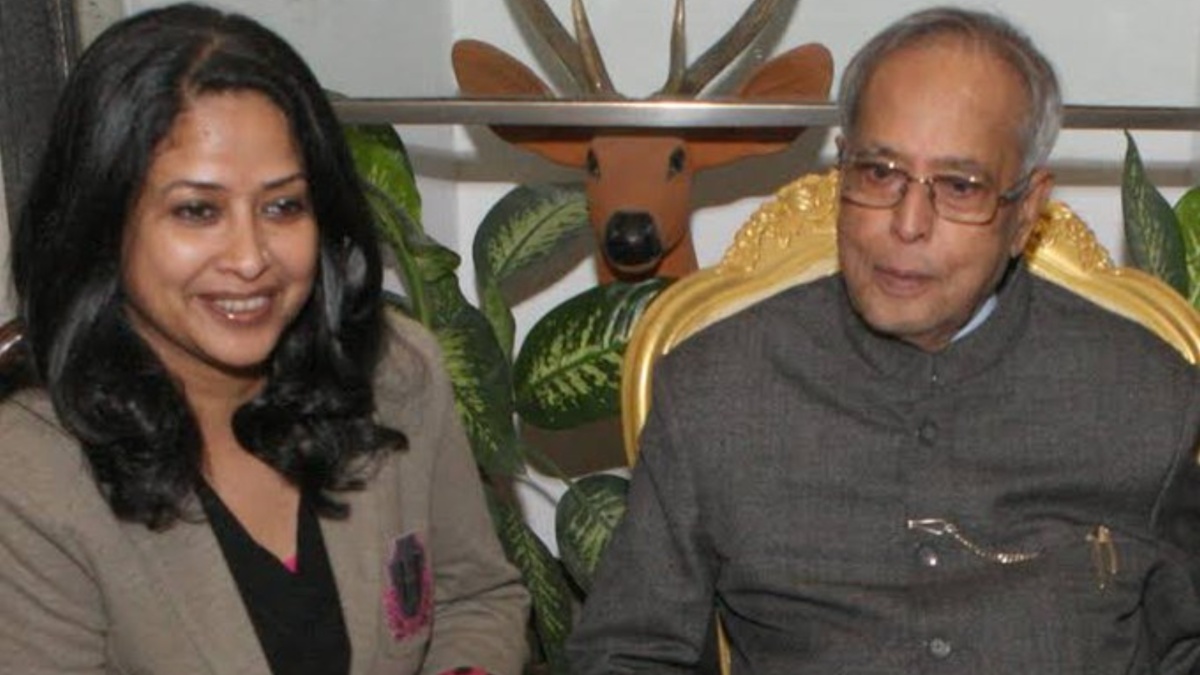 |
|
The political landscape in India has been further complicated by a very public and acrimonious dispute between the children of former President Pranab Mukherjee. Sharmistha Mukherjee, the former President's daughter, has launched a scathing attack on Rahul Gandhi's loyalists within the Congress party, accusing them of hypocrisy and disrespect towards her father's memory. This conflict centers around allegations that the Congress party failed to adequately honor Pranab Mukherjee following his death in 2020, specifically citing the lack of a dedicated Congress Working Committee (CWC) meeting in his honor. Sharmistha’s criticisms have been particularly sharp, labeling Rahul Gandhi’s supporters as “bhakt-chelas” (devotees and disciples) and highlighting the perceived inconsistency between their condemnation of her father's visit to the RSS headquarters and Rahul Gandhi's own controversial embrace of Prime Minister Narendra Modi. She challenged the credibility of these loyalists, directly questioning their leader's actions and suggesting a double standard in their political allegiances. Her use of social media, particularly X (formerly Twitter), has amplified this family feud, making it a significant political talking point.
The controversy has been further escalated by the involvement of Sharmistha's brother, Abhijit Mukherjee, who, despite previously holding a position within the Congress party, has defended the party's actions. Abhijit attributes the perceived lack of immediate tribute to Pranab Mukherjee to the limitations imposed by the COVID-19 pandemic, arguing that restrictions at the time prevented a large gathering. He further clarified that the Congress eventually held a CWC meeting to honor their late president. This defense, however, has only intensified the conflict between the siblings. Sharmistha dismissed Abhijit's explanation, accusing him of prioritizing personal gain over familial loyalty by seeking a return to the party that she alleges has consistently maligned their father’s legacy. Her scathing remarks, referencing his past controversial comments during the 2012 Nirbhaya gang-rape protests, added another layer of harshness to this already charged family dynamic. The exchange between Sharmistha and Abhijit exposes deep divisions not only within the Mukherjee family but also highlights underlying fault lines within the Congress party itself, raising questions about its internal cohesion and ability to manage significant internal dissent.
This public family feud presents a compelling case study in political dynamics within India. It is not merely a personal squabble; it reveals deeper schisms within the Congress party and its relationship with figures beyond its immediate ranks. Sharmistha’s vocal criticisms expose the fragility of party loyalty and the potential for internal conflict to significantly undermine a party's image and credibility. Her attacks aren't simply directed at individual members; they are a wider critique of the Congress's handling of its internal disagreements and its approach to remembrance and respect for former leaders. The involvement of Abhijit Mukherjee adds another dimension, showcasing the complexities of family loyalty versus political allegiance and the potential for personal ambitions to overshadow familial unity. The use of social media has also significantly amplified this controversy, turning a private family matter into a high-profile political debate with far-reaching consequences. This case underlines the increasingly blurred lines between public and private life in the digital age and the power of social media to shape narratives and influence public perception, particularly in a politically charged environment like India's.
The broader context of this family feud cannot be ignored. It occurs within the backdrop of ongoing political turmoil and shifting power dynamics in India. The Congress party, once a dominant force in Indian politics, is currently facing considerable challenges. This internal rift serves to further weaken the party’s image at a crucial time, and the public airing of grievances adds to the perception of disunity and internal conflict. The controversy is not simply about the honor paid to Pranab Mukherjee; it also reflects the struggle for power within the Congress and the various factions vying for influence. Sharmistha Mukherjee's criticisms, while potentially viewed as family drama by some, can also be interpreted as a reflection of deeper concerns about the state of the party and its future trajectory. The sustained media attention this conflict has garnered further underscores the significance of this intra-party conflict, turning it into a potent symbol of deeper issues within Indian politics.
In conclusion, the public conflict between Sharmistha and Abhijit Mukherjee serves as more than just a family drama; it is a significant indicator of the fault lines within the Congress party and the complexities of political loyalty within the Indian political landscape. The clash between familial obligation and political allegiance, the impact of social media in amplifying the conflict, and the larger implications for the Congress party's standing make this a critical event worth deeper analysis. The controversy forces a reflection on the dynamics of political legacy, the realities of intra-party dissent, and the ongoing battle for power within Indian politics. Further analysis should consider the potential long-term consequences of this open conflict, both for the Mukherjee family and for the Congress party itself.
